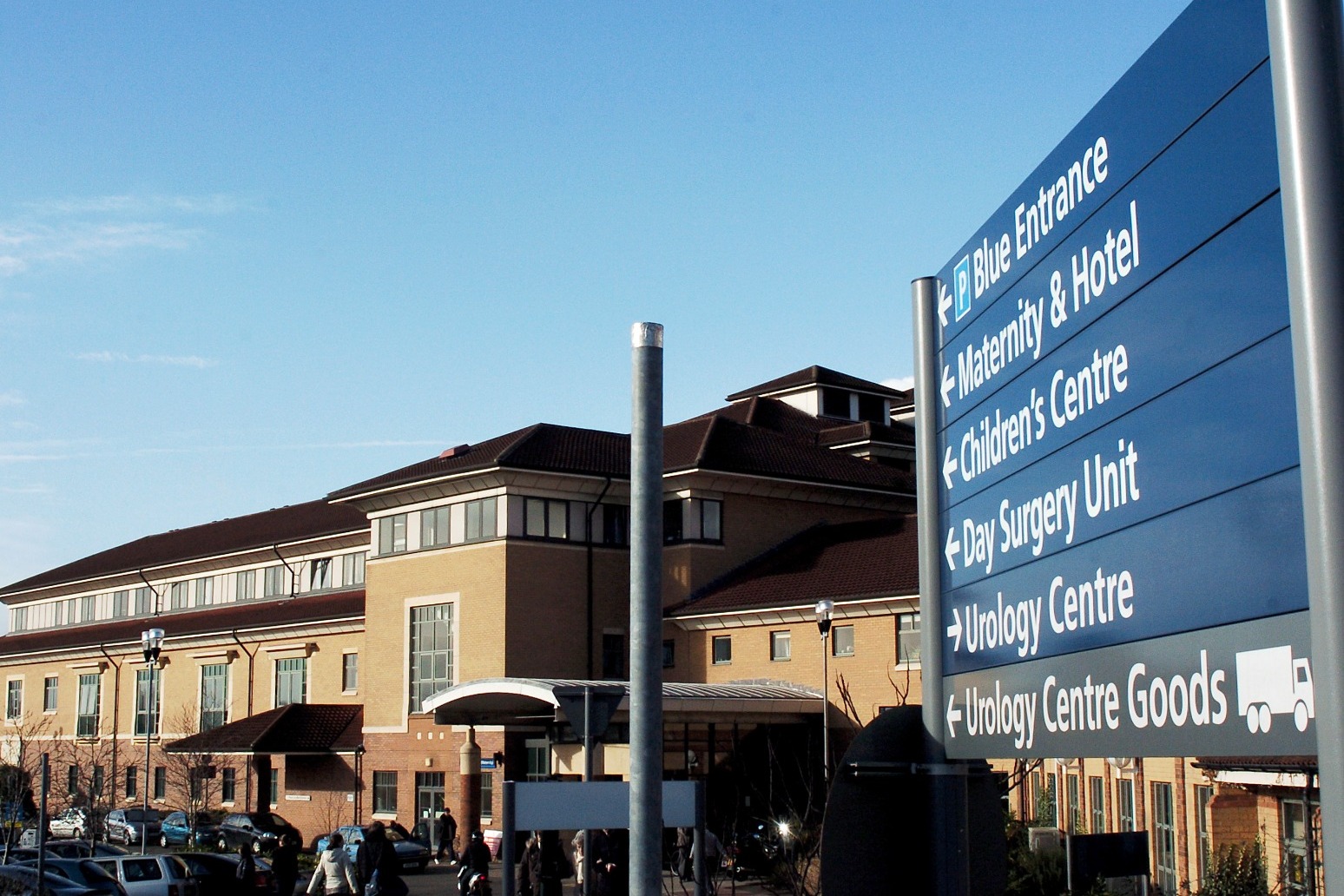
Regulator issues safety warning over Nottingham’s maternity services
It comes after Donna Ockenden was appointed as chair of an independent review into maternity services at Nottingham University Hospitals NHS Trust
The healthcare regulator has issued a safety warning to an NHS trust embroiled in a scandal over baby deaths.
The Care Quality Commission (CQC) told Nottingham University Hospitals NHS Trust it must make “significant and immediate improvements” to its maternity services as it said women and babies may not be safe.
It follows unannounced inspections at the trust in March and comes as senior midwife Donna Ockenden was appointed to chair an independent inquiry into maternity issues at the trust.
To date, dozens of babies are believed to have died or been left with serious injuries as a result of care at the trust, which runs Nottingham City Hospital and Queen’s Medical Centre (QMC).
The families of the babies affected have been repeatedly calling for an independent review led by Ms Ockenden, who chaired the investigation into baby and mother deaths at Shrewsbury and Telford Hospital NHS Trust.
They wrote to Health Secretary Sajid Javid and rejected a separate “independent thematic review” established by NHS England and Nottingham and Nottinghamshire clinical commissioning group.
In its new reports, the CQC said overall maternity services at the two Nottingham sites remained inadequate and were also inadequate for being safe and well-led.
The rating for being effective has gone up from inadequate to requires improvement, being responsive has gone down from good to requires improvement and caring remains good.
The CQC has taken enforcement action by issuing a warning notice in relation to how the trust is managing observations of women, with basic checks not being carried out that would tell if a woman was deteriorating.
This includes seeing women quickly if they attend the units because they were concerned.
At both maternity units, the CQC concluded that while staff tried to provide good care: “The service did not have enough staff to care for women and keep them safe. Not all staff had training in key skills.
“Staff did not always assess all risks to women, and we were not assured staff acted upon concerns in a timely way.”
Across the sites, inspectors found that staff did not always keep good care records and did not always manage medicines well.
They also did not feel assured that staff reported all incidents and near misses, and workers did not always receive feedback.
Referring to previous inspections, the CQC said improvements are still not being implemented across the trust.
The trust is already under NHS England and Improvement’s System Oversight Framework, meaning it receives intensive support through a recovery support programme for the challenges it has.
The CQC noted that at City Hospital there were 19 serious incidents reported by maternity staff between March 2021 and February 2022. In addition, there are currently five Healthcare Safety Investigation Branch investigations.
At Queen’s, it said: “The service did not always have enough medical staff with the right qualifications, skills, training and experience to keep women and babies safe from avoidable harm and to provide the right care and treatment.”
The unit was also missing its own targets for care and treatment. For example, the avoidable neonatal unit admission rate for babies born at term was 18.8% against a target of 5%.
Fiona Allinson, CQC’s director of operations, Midlands network, said: “We saw staff in the maternity departments at Nottingham University Hospitals NHS Trust working hard to provide care to patients in very challenging circumstances and this is reflected in the good caring rating we gave.
“Although we found some improvements, they are not widespread or rapid enough to address the areas of concern we identified during previous inspections.
“It’s disappointing that despite several inspections where CQC has told the trust areas they must improve to keep mums and babies safe, serious problems remain.
“One of our biggest concerns was that staff weren’t always carrying out observations on women to check that their condition hadn’t deteriorated.
“Midwives weren’t always clear who could perform observations, some staff didn’t carry them out as they said it wasn’t their role, and overdue observations went unrecognised.
“This gave us serious concerns about their ability to recognise and respond to women who were deteriorating, so we have taken enforcement action against the trust to focus them on rapid improvement in this area.
“Despite placing conditions on the trust’s registration in October 2020 due to staffing concerns, we found there were still not enough staff with the right qualifications, skills, training and experience to keep people safe.”
Sharon Wallis, director of midwifery at Nottingham University Hospitals, said: “Keeping mums and babies safe and providing them with high quality care remains our top priority, and we are committed to continuing our work with local families and healthcare partners to make the changes still needed.
“Our teams are working hard to make the necessary improvements, but recognise we have more to do and are absolutely determined to speed up the pace of change and deliver quality services for women and their families.”
Published: by Radio NewsHub